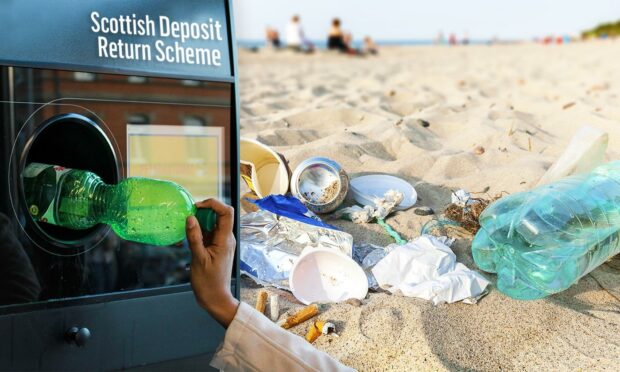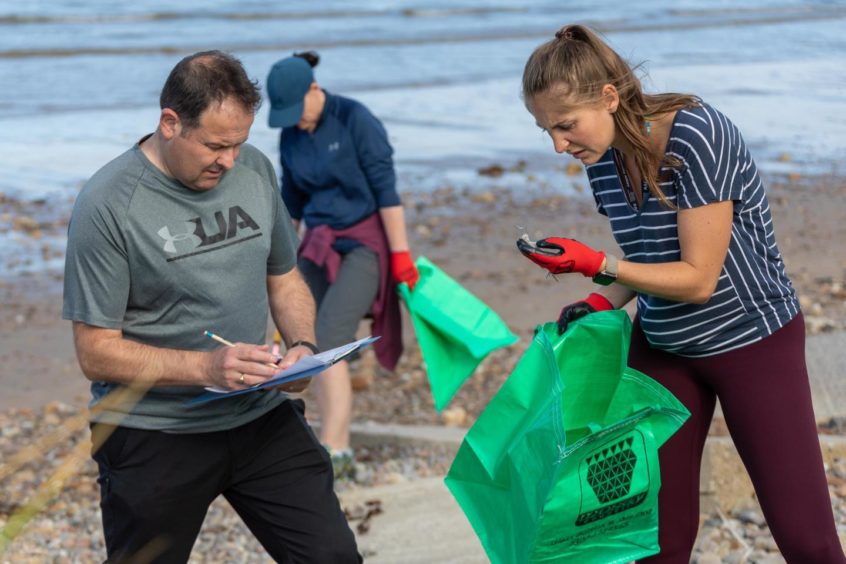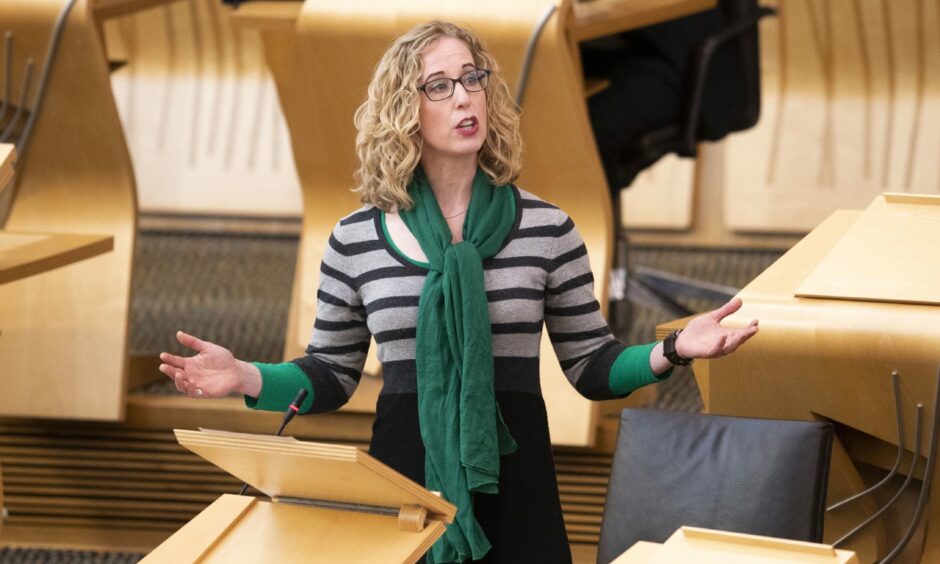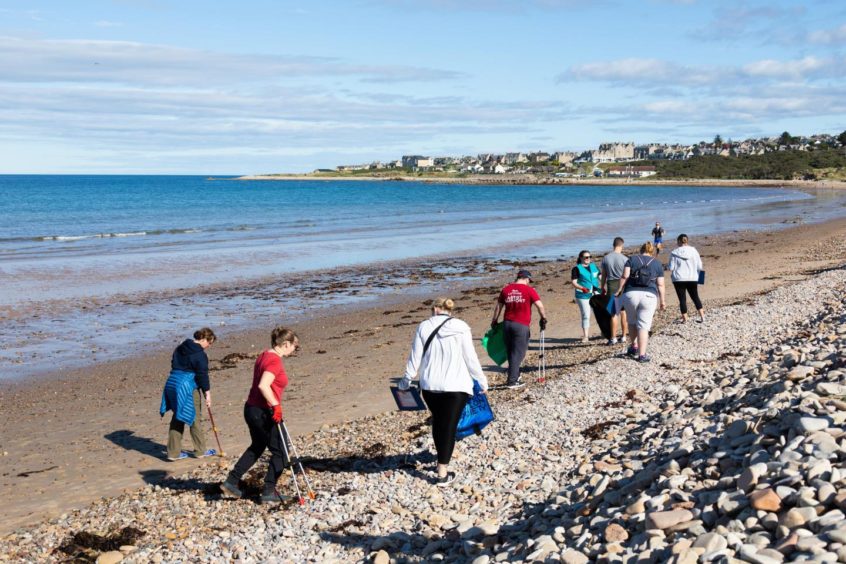Scotland’s deposit return scheme should face no further delays, conservationists claim, with new research suggesting 92% of the country’s beaches are littered with cans and bottles.
Every year, the Marine Conservation Society’s Great British Beach Clean (GBBC) tasks volunteers across the UK with scouring their local shorelines of rubbish.
For this year’s event, almost 10 miles of Scotland’s beaches were cleared and surveyed by more than 1,500 hard-working participants.
Over 10 days in September they filled 592 bags with litter, weighing more than two tonnes in total.
And while these results were still below the overall UK average, they also revealed some worrying data for the environment.
In Scotland, 92% of the beaches cleaned were polluted with the likes of empty glass bottles, cans, and single-use plastic drinks containers.
The Marine Conservation Society (MSC) has now called on the Scottish Government to finally implement the “long-awaited” deposit return scheme in order make an “instant impact” on the volume of discarded drinks washing up on our coastlines.
How would the deposit return scheme work, and what is causing the delay?
Initially planned for April 2021, the start date for the bottle and can recycling project has already been pushed back to July next year.
But last week Green MSP Lorna Slater, the Circular Economy Minister, told Holyrood there is still no set timescale for when the scheme will actually be implemented.
She blamed a number of problems for the delay, including Covid, Brexit, and tax concerns.
Once the initiative is rolled out across Scotland, 20p will be added to the price of products like fizzy drinks, beer and water sold in plastic bottles, cans, and glass.
The consumer is then able to get their 20p deposit back when they give their empties to retailers over the counter or by using technology called reverse vending machines (RVM).
The machines scan returned containers, give the users their deposit, and then the waste is collected for recycling.
Deposit return could be ‘groundbreaking policy’
Catherine Gemmell, Scotland conservation officer at the MCS, highlighted the impact that previous policy decisions have had on the litter washing up on Scotland’s beaches.
It found an average of just three single-use plastic bags for every 100 metres of Scottish beach cleaned in this year’s GBBC.
In 2013, the year before the introduction of the 5p plastic bag charge in Scotland, that figure stood at 17 bags per 100m.
Ms Gemmell said another major concern was the volume of wet wipes recovered.
The wipes, which often make their way to our beaches through the sewer system, are mostly not biodegradable and can cause major problems for wildlife.
She said: “Banning single-use plastic wet wipes is such an easy step to take in order to help achieve a circular economy and a society of reuse, repair and refill.
“The long-awaited deposit return scheme for Scotland could be another groundbreaking policy which would have an instant impact on the amount of drinks litter we see on Scottish beaches every year.
“There’s no time for delay — plastic pollution must be tackled now, and it’s time for the Scottish Government to step up.”
What is the Scottish Government doing to tackle plastics and other litter?
Although the plans for the deposit return scheme have been mired in delays, the Scottish Government is working on other initiatives to prevent harmful plastics entering the natural environment.
A spokesman for the Scottish Government said the the government remains “fully committed to implementing Scotland’s deposit return scheme”, and said it “will be among the most environmentally ambitious and accessible in Europe”.
He said: “The sectors responsible for delivering the scheme have faced unprecedented disruption as a result of the pandemic and Brexit.
“We are working intensively with industry to determine a final timescale and clear milestones for delivery and will announce the next steps to Parliament in due course.”
The spokesman also highlighted that the government will soon be consulting on a “refreshed marine litter strategy, which will include a range of actions to tackle litter on our beaches, green spaces and seas”.
What is the aim of the deposit return scheme?
Zero Waste Scotland hopes the scheme could lead to 34,000 fewer plastic bottles littered in Scotland every day.
It would also save the nation £62 million a year from the costs of tackling the indirect impacts of litter, and cut four million tonnes of CO2 equivalent emissions over 25 years.
More than 17,000 return points would be implemented nationwide, and an extra 76,000 tonnes of material would be recycled each year if all goes to plan.
Similar schemes are already in place in countries like Norway, Germany and Sweden.



